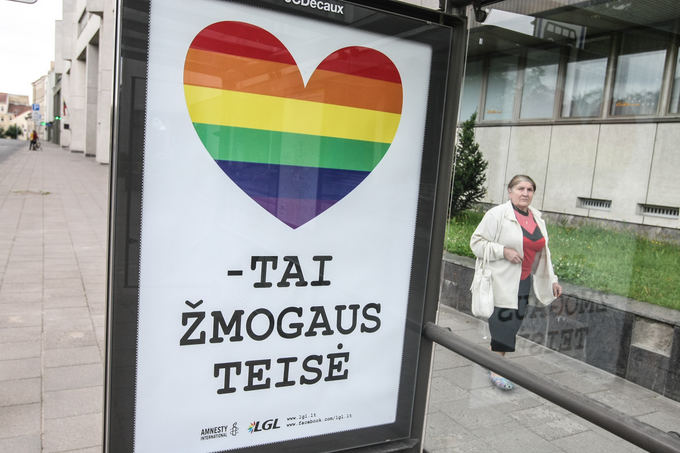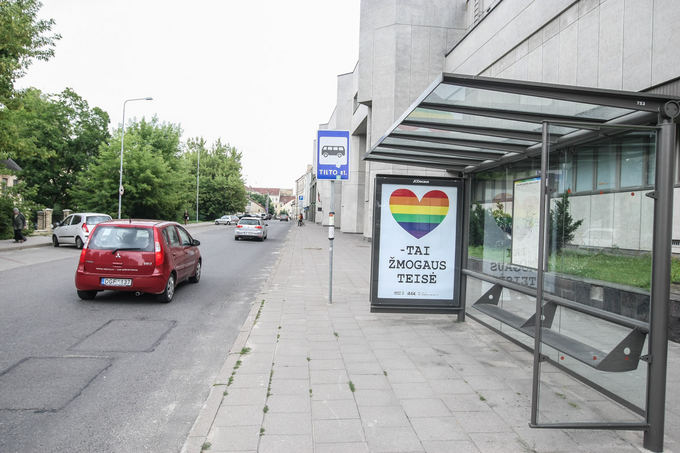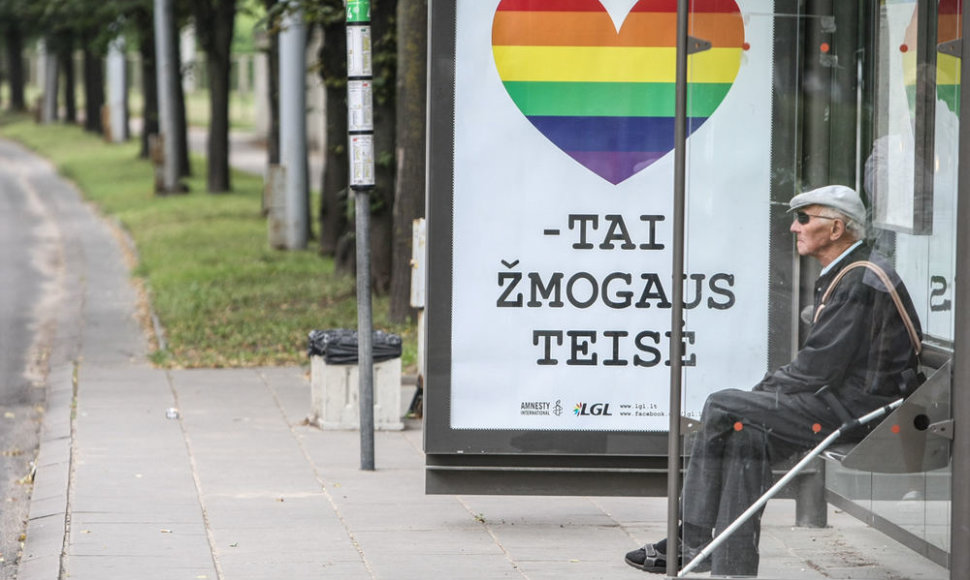The officials allege that the posters, which bear the slogan "Love is a human right", were hung in the city's bus stops without permission - but the permission would have been granted next week, less than a week before the event they promote.
Sole remark from a linguist
The posters promoting the Baltic Pride march 'For Equality', an event scheduled for next Saturday and anticipated with much heat and anxiety, were put up in several dozen bus stops around Vilnius this Tuesday. The posters make no direct reference to the march or to Baltic Pride and merely shows a rainbow-coloured heart and, underneath it, black lettering "is a human right".
Several days later, JCDecaux Lietuva, the company managing the advertising stands, was paid a visit by a representative of the Municipal Public Order Department. According to JCDecaux, the city official alleged that the posters were illegal, because the company failed to follow procedures of clearing outdoor advertising with the authorities.
 |
JCDecaux lawyer Gediminas Pranevičius tells 15min that before it hung the posters, the company had uploaded the mock-up to the Municipality's database for officials to take a look - something it has done numerous times before. The only remark came from a linguist who asked to correct one mistake. JCDecaux did it and, receiving no further comments, put the posters in the stands, just like it was planned.
Pranevičius says he was surprised by the visit from the Municipality. Until now, whenever there were problems with outdoor advertising, the company would receive a written letter with a request to submit a written explanation. "It is strange that the official came in person. It shows hastiness and exceptional attention given to this case," he speculates.
An administrator at JCDecaux office explained to the official that the company followed a usual procedure in clearing the poster with the authorities. However, that was not enough. On Friday, Pranevičius received a phone call - the Public Order Department official invited him to come to his office, saying that the company faced sanctions for putting up ads without the clearance from the municipality. Pranevičius was not told what sanctions those were, but he says that, in similar cases, a company's director gets an administrative fine of about 500 litas (150 euros).
The phone call was even a bigger surprise to Pranevičius than the visit: "When something similar happens, we never talk directly. They always send us a letter and invite to a hearing in writing." Moreover, the Municipality would habitually allow sufficient time for respondents to prepare a statement and explain themselves before making a decision. In this case, however, the Municipality decided to punish the company without further ado.
 |
"I've been practising law for 15 years. All calls are sent in writing. So I said: No, thank you, send me a letter," Pranevičius says. "Astonishing haste... They want to demonstrate that the city did not authorize the ads, that it does not subscribe to their content."
The lawyer shrugs when asked to speculate on why Vilnius officials might have a problem with the posters: "A heart, a phrase about love... No mention of parades. Even formally, there is no reason to disallow it."
Pranevičius also notes that the Lithuanian Gay League (LGL), which ordered the posters, was a perfectly good client and has already paid the bill.
Permission would have been given next week
Daiva Savickienė, deputy director of Public Relations Department at Vilnius Municipality, informs 15min that, at first, the poster was inspected by a linguist who had some remarks - these remarks were addressed. Then the poster went to the Municipality's experts who, according to regulations, had up to five days to present their report.
"Our people used the five-day deadline to give their response. They did not see any problems. Everything was in order and a permission would have been issued, but they [JCDecaux] hung the posters prematurely," she explains.
According to Savickienė, the deadline for issuing the permission is next Tuesday.













